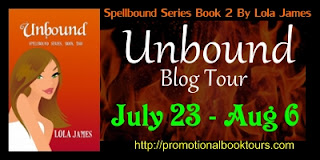Two Brothers: Heritage - Guest Post
Buy on Escargot | Amazon
Guest Post:
Rewrite, Revise, Repeat
Very few people are so good at writing that they never need to revise and edit, and for those who are, I commend you! I’m among the multitudes who have to revise, rewrite and repeat, over and over until I’m happy with the result. In fact, it doesn’t even stop there. I belong to two critique groups who read my work chapter-by-chapter and give me harsh, but loving, feedback on what isn’t working. This is a reciprocal process. The first few critiques were the hardest and pretty much crushed my soul, but after that, I realized that feedback is vital and my fellow writers are taking time out of their lives to help me. That’s special, and very much appreciated.
As strange as it might sound, I enjoy working on a second draft and tweaking my manuscript. It makes me relive what I’d already written and see things that I didn’t the first time, just like when you read a book the second time and realize you’d missed things on the first read. It’s fun. When I’m working on several manuscripts at the same time, I find that it’s a good idea to put the completed one aside between rewrites/revisions and work on another one. This give me an opportunity to remove myself from the first story. What this does is allow me to look at the story again with ‘fresh eyes’. I’m sure we’ve all written something and thought it was fine, then someone else glances at it and finds an error, whether it’s a misspelling or grammatical mistake. Those‘fresh eyes’ are invaluable!
This is the reason having someone else read your work is an excellent way to find those errors that you don’t see. For me, the feedback stage is critical because I tend to write my first draft a little sketchy. What I mean is that I write quickly and get the main characters, secondary characters and plot down first, then go back and enrich or enhance the manuscript with more detail and plot development. My critique groups help me find the places that are in dire need of enrichment. Now, this is not to say that I do everything they say, I don’t, but if five people say the same thing, I listen. After years of writing, I know that my writing isn’t over when I type ‘the end’, it’s really only the beginning!
- Sofia Diana Gabel
About the Author:
Sofia Diana Gabel is a multi-genre fiction writer who was born in Sydney, Australia, but is now living in the United States with her family. With undergrad degrees in environmental science and archaeology, and currently attending graduate school in archaeology, she enjoys learning and being out in nature when she's not glued to her desk writing or researching a new story idea. Writing is a true passion of hers, born from a love of the written word that can transport the reader to different places or worlds and deliver them back to reality, safe and sound.Follow the Book Tour



Comments
Post a Comment